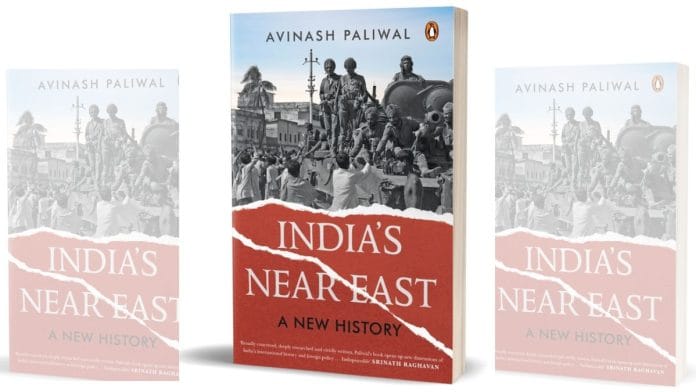India’s connections with East Asia have changed dramatically in recent years, influenced by both historical links and current geopolitical dynamics. India’s cultural and commerce connections with East Asia can be traced back to ancient times when Buddhism spread and the maritime Silk Route existed.
‘India’s Near East’ by Avinash Paliwal can be viewed as a stage of geoeconomic connection epitomized by the ‘Act East’ policy, and it is critical not only to its great-power rivalry with China, which erupted in the 1962 war but also to the idea(s) of India itself. It is also one of the most delicately partitioned regions on Earth. Due to community and class strife, the region has produced extreme forms of religious and ethnic nationalism, as well as communist groups. The Indian state’s survival instinct and goal of regional hegemony have exacerbated such extremes.
Published by Penguin India, ‘India’s Near East’ will be released on 16 September on SoftCover, ThePrint’s online platform for launching non-fiction books.
Currently, India’s ‘Act East’ policy, which was introduced in 2014, aims to strengthen diplomatic and commercial ties with East Asian countries, especially with South Korea, Japan, and the ASEAN countries. China’s expanding influence in the Indo-Pacific, shared economic interests, and worries about regional security are the main drivers of this change. In addition to encouraging deeper military and commercial collaboration, India has taken an active position in regional fora such as the East Asia Summit and ASEAN-led initiatives. India’s expanding connection with East Asia is a vital component in its aim of a multipolar and balanced Asia, with an emphasis on improving connectivity, trade, and marine security.
This book provides a new history of India’s eastward-looking diplomacy and statecraft. It presents a simple but powerful argument, set against the backdrop of separatist struggle in India’s northeastern provinces, as well as rivalry with Beijing and Islamabad in Myanmar and Bangladesh. The objectives of ‘Act East’ conceal a painful truth: India prioritizes political stability over economic opportunities in the area. Avinash Paliwal’s record of a state’s battle to overcome conflict, relocation, and interventionism reveals the limits of independent India’s influence in the Near East.
Author Avinash Paliwal is an international relations reader at the University of London’s School of Oriental and African Studies, where he focuses on South Asian strategic issues. He is a former journalist and international affairs commentator who has written India’s Near East: A New History and My Enemy’s Enemy: India in Afghanistan from Soviet Invasion to US Withdrawal.
Speaking about the book, Srinath Raghavan, professor of international relations and
history at Ashoka University said, “Broadly conceived, deeply researched and vividly written, Avinash Paliwal’s book opens up new dimensions of India’s international history and foreign policy. Indispensable for everyone interested in the past, present and potential futures of India in Asia.”
Shivshankar Menon, former foreign Indian secretary, ambassador to China and national security adviser called the book a ‘rigorous scholarly work of contemporary relevance’.
“India’s Near East is a rigorous scholarly work of great contemporary relevance. For a deep and basic understanding of the geopolitical dynamics of a partitioned land that was once administratively united by colonialism, and for its twentieth-century evolution through war, conflict and social and administrative change, this will long be the book to turn to,” said Menon.
Also read: New book delves into India’s evolving concept of freedom through a journey across the nation






